Attending a cremation service can be an emotional experience, and it's natural to have questions about what happens during this process.
We explain what happens at a cremation service and during the cremation itself.
You'll also find some ideas about what to include as part of the cremation service as well as more information about unattended cremation which offers an alternative to holding a cremation service.
When it comes to the service itself, both cremation and burial are similar. Events usually proceed according to an order of service which is put together by the person arranging the funeral.
Here’s a simple step-by-step summary of what to expect.
The coffin containing the deceased is usually present at a cremation or burial service. There may be a procession in which the coffin is carried into the service by pallbearers. Alternatively, the coffin may already be in place at the front of the chapel or other service location as the mourners enter.
Some services include a moment for the mourners to approach the coffin, letting people say their goodbyes.
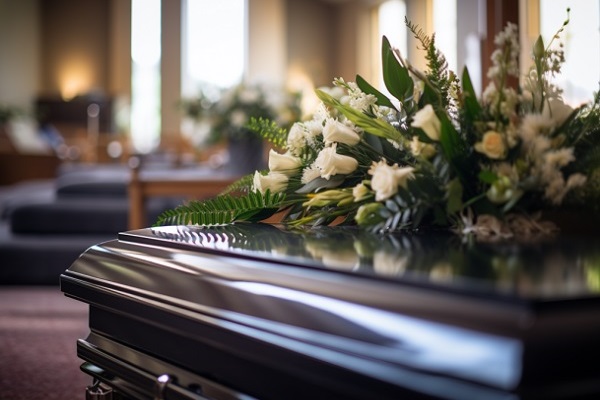
During the service, time is dedicated to remembering the deceased's life and celebrating their unique qualities. There might be readings, prayers and eulogies shared by loved ones. Music, whether live or recorded, is often played, adding to the personal and meaningful nature of the service.
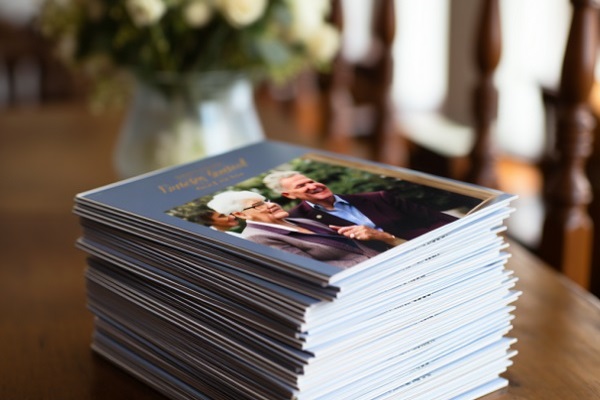
When the service is complete, some crematoria draw curtains around the coffin as the mourners depart. Once the mourners have all left the chapel, the crematorium staff will respectfully begin the cremation of the deceased, away from the view of their loved ones.
The body is respectfully placed in a cremation chamber, where it is exposed to high temperatures, reducing it to ashes over a few hours. It is sometimes possible for immediate family to view the cremation at their request, although most people prefer to leave following the service.
At a burial, attendees (typically just close friends and family) are invited to attend the interment of the coffin after the service and witness the coffin being placed into the ground.
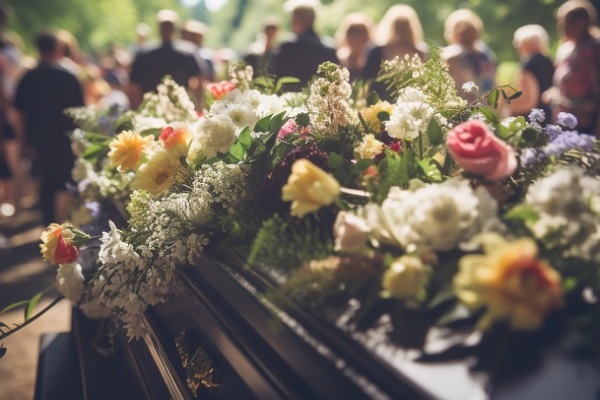
After the cremation, the remains, now in the form of ashes, are carefully collected and placed in an urn or a temporary container. The family then receives the ashes, which can be kept, scattered, or placed in a memorial site according to the wishes of the deceased or the preferences of the family.
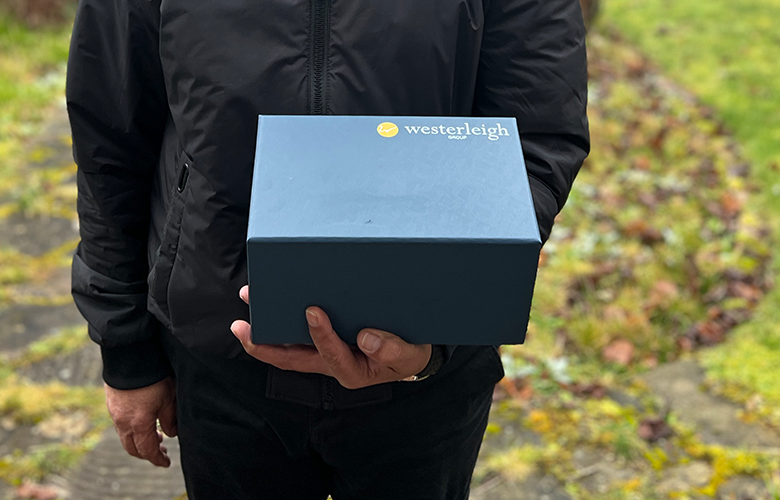
If you’ve chosen to have an unattended direct cremation, the deceased will be cremated without a service. This is a fuss-free cremation option for those who want a simple cremation without a ceremony.
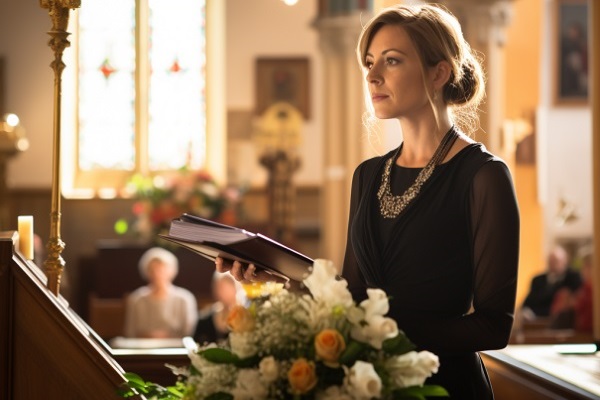
Most cremation services last somewhere between 15 and 45 minutes. For some, a simple 15-minute send-off with time for reflection and a few words from a family member or a friend is more than enough. For others, a full service with hymns, readings, prayers and eulogies can extend the service time.
At Distinct Cremations, our two low cost cremation with service options include either a 10-minute service for up to 8 attendees or a 20-minute service for up to 20 attendees.
The service time can also be affected by whether or not the individual being cremated was religious, with certain ceremonies and traditions being observed before the cremation. For example, you can expect a humanist service to be shorter than a Catholic service.
There is no right or wrong way to hold a cremation service. The most important thing is to create a space where you and your loved ones can find comfort, share memories and celebrate the life of the person you’ve lost in a way that feels personal and true to their spirit.
Planning a cremation service can be a deeply meaningful experience, but we understand that it can also be emotionally tough. So, here are some cremation service ideas you can use for inspiration.
Memorial ceremony
Organise a memorial service at a place that holds special meaning to your loved one, such as a park, beach, or family home. Invite friends and family to share stories, read poems, or perform music that was significant to the deceased.
Personalised urns
Choose or design an urn that reflects the personality and interests of your loved one. There are many options available, from traditional styles to custom designs that can incorporate elements such as photos, favourite colours, or symbols.
Plant a memorial tree
Consider planting a tree in memory of your loved one. Memorial trees can be a beautiful and lasting tribute that provides a place for reflection and remembrance over the years. Our Go Greener funeral add-on includes tree planting to help combat climate change.
Scattering ceremony
Plan a scattering ceremony in a location that was meaningful to the deceased, such as a favourite hiking trail, lake, or garden. This provides a serene and personal way to say goodbye, with family and friends sharing memories as the ashes are scattered.
Virtual memorial
For those who cannot attend in person, consider hosting a virtual memorial service, to allow friends and family from afar to participate, share memories, and offer their condolences.
Celebration of life
Instead of a traditional service, you might choose to host a celebration of life. Your celebration could be a more casual gathering with music, food, and activities that reflect your loved one’s passions and hobbies.
Keepsake jewellery
Create keepsake jewellery, such as necklaces or bracelets, that can hold a small portion of the ashes. This can be a comforting way for close family members to keep their loved one close.
Charitable donations
Encourage guests to make funeral donations to charity or a cause that was important to your loved one in lieu of flowers, helping create a lasting impact and honour their values and passions.
If you need more support or guidance, you may find it helpful to reach out to a funeral celebrant or a grief counsellor. They can provide additional ideas and help you through this difficult time.
People often wonder what happens at a cremation behind the scenes. Cremation works by burning the remains of the deceased at high temperatures in specialised units called cremators.
First, the body is carefully prepared for cremation. This involves placing the deceased in a sturdy coffin designed for the cremation process, which is typically made of wood or another combustible material and is chosen to ensure both dignity and safety.
To start the cremation process, the coffin is committed to the cremator. The chamber is heated to temperatures which can exceed 1000 degrees Celsius. The intense heat reduces the body to its basic elements over a period of one to three hours.
Once the cremation is complete, the remains are carefully collected from the chamber, and any metals from the coffin are removed. These fragments are then processed into a fine, sand-like consistency using a machine called a cremulator.
Once the ashes have been processed so that they are uniform and suitable for scattering, burying or keeping, they are placed into a temporary ashes container or funeral urn, depending on the family's wishes.
One of the most common questions around what happens at a funeral is ‘how long does a cremation take?’ Using modern methods, a typical cremation only takes between one and three hours.
Once the cremation has taken place, either the crematorium or the funeral provider that organised the funeral will let you know.
After the cremation, there are a few different options for what to do with the ashes. You can choose what feels right for your loved one and your family.
Get in touch with us on 01543212000 to find out more about our options for attended ashes scattering or interment services.
If you need to arrange a funeral today contact us now and our specialists will guide you through the cremation process and make all the arrangements on your behalf.
If you would like a basic low-cost cremation that involves no funeral service, then a direct cremation is the right choice for you. Alternatively, choose an attended cremation which enables a small number of attendees to come together and say goodbye to their loved one.
Call us on 01543212000The choice to have a service at a cremation is entirely up to you and your family. Whether you choose a cremation with or without a service can depend on many factors, including financial ones.
If you prefer, you can opt for a direct cremation, which is a straightforward, simpler and more affordable option that maintains care and respect for the deceased. At a direct cremation, the body is cremated without a formal service or ceremony beforehand. This option can provide peace and simplicity for those who prefer a more private or less traditional approach.
At Distinct Cremations, you can have an unattended cremation service for a loved one who has passed away. Or if you would like a direct cremation for yourself or someone else in future, we also offer our Unattended Direct Cremation Plan.
Our Unattended Cremation is a great choice for those looking for a simple, low-cost unattended cremation without a funeral ceremony. Unattended cremations take place with no service or mourners present at our high-quality crematoria where dignified care is guaranteed throughout.
Celebrate a life without the restrictions of a funeral. Choose our simple and dignified unattended cremation ahead of time and pay in advance. Our Unattended Direct Cremation Plan is our cheapest funeral plan with no formal service or attendees present.
* Price advertised is for a 50 year old paying over a 10 year period. Total cost is £2,374.80 and includes administration fees.
See our guidance to support and inform you when making arrangements for a loved one who has died. Our patient, experienced and caring Customer Service Specialists are on the other end of the phone 24/7 to help you arrange a funeral. Just call us on 01543212000.

A necessary part of arranging a funeral is to fill out the right legal paperwork. Knowing what you need to do can feel overwhelming. Find out about the funeral documents required and how we can help you with them.
Funeral documents
From music and hymns to poems and readings, there are many ways a funeral service can be tailored to your loved one's beliefs, interests and personality. See our guidance on the ways you can make a funeral personal.
Personalising a funeral
If you're anticipating the death of a loved one or you're thinking ahead about your own funeral wishes, a funeral plan may be right for you. Get a free guide about our options for planning and paying for a funeral in advance.
Request a guideWe offer the highest level of support, but don't just take our word for it. Below are recent reviews from customers who bought a funeral with us.





